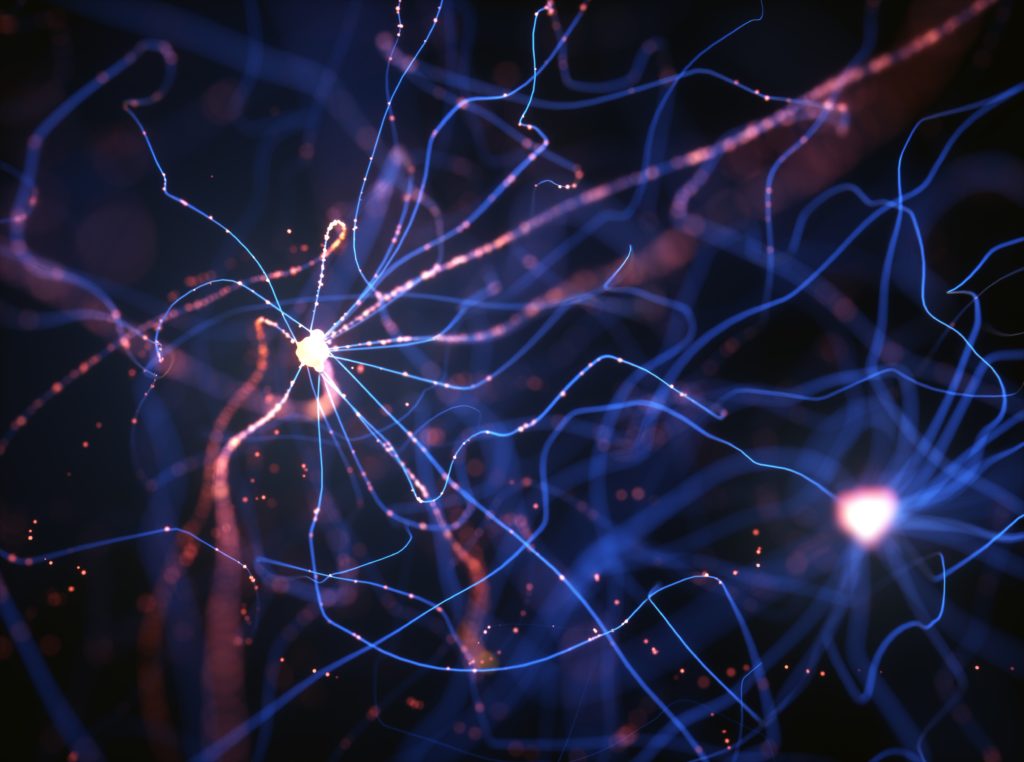Quick Hits
Daily brief research updates from the cognitive sciences

There are different types of dark matter in the brain. Matter that is often little researched or unknown to different population groups. I have written previously about glial cells and their contribution to just about everything, something neuroscientists know a lot about, to electrical neurons, that have been vastly under researched.
But now some researchers have made some discoveries in another area, and that is that of silent synapses. Synapses are the connections between your brain cells. The current understanding is that as you learn, develop new skills, synapses connect, and strengthen and build the networks in your brain – this is how your brain is continually growing and changing. However, these would always be part of a network. Silent, inactive synapses have been seen in the brains of developing mice so it was thought they played a key role in the developing brain but not in adults.
However, in an unexpected discovery MIT researchers have found silent synapses at levels 10 times higher than expected. The researchers were not actually looking for silent synapses but trying to measure neurotransmitter receptors on the branches of neurons. Some of these branches and connections, known as filopodia, are extremely fine and small and are difficult, or impossible, to see with standard imaging techniques.
On discovering these in such high quantities they then proceeded to investigate whether they were indeed silent synapses by attempting to stimulate these with a combination of a neurotransmitter and an electrical stimulus. They found that indeed these were silent but could grow into active synapses much quicker than by altering mature synapses.
That’s good news and this explains how we can learn things quicker – having silent synapses allows rapid learning and being able to build new memories without building whole new synapses.
Whether this is different between different people is another question – but I am hoping I have a bunch of silent synapses waiting to spring into action when I engage with new material – such as writing this article – go silent synapses, go!

Andy Habermacher
Andy is author of leading brains Review, Neuroleadership, and multiple other books. He has been intensively involved in writing and research into neuroleadership and is considered one of Europe’s leading experts. He is also a well-known public speaker, speaking on the brain and human behaviour.
Andy is also a masters athlete (middle distance running) and competes regularly at international competitions (and holds a few national records in his age category).
References
Vardalaki, D., Chung, K. & Harnett, M.T.
Filopodia are a structural substrate for silent synapses in adult neocortex.
Nature, 2022
DOI: 10.1038/s41586-022-05483-6
More Quick Hits
How Meditation Helps Pain In Your Brain
Quick HitsDaily brief research updates from the cognitive sciences es, meditation can help with pain by changing your experience of it. I reported on that here. Another piece of research just published shows that how experienced meditators and...
When Stress Is Good For Brain Functioning
Quick HitsDaily brief research updates from the cognitive sciences tress gets a bad rap – understandably it is a negative experience and has been shown over long periods of time, and with high intensity, to cause multiple negative outcomes, from...
Put Your Smartphone Down and Let your Mind Wander – You’ll Be Happier
Quick HitsDaily brief research updates from the cognitive sciences here’s a lot been said about smartphone usage and how it can be used and abused. Most of this concern revolves around usage in children or teenagers, however, with some research...
The Amazing Impact Of Reaching Out To Your Old Friends
Quick HitsDaily brief research updates from the cognitive sciences few weeks ago a friend I hadn’t seen for about 10 years sent me a message and asked if I had time to meet up. I was elated. "Sure," I immediately messaged back, "when and where?!"...
Really? Belief In Conspiracies Not Increasing
Quick HitsDaily brief research updates from the cognitive sciences e may feel like we’re in an age of conspiracy theories, that social media is turbocharging the wild and wacky theories, and the so-called information bubbles are sending people down...
You Wake Up 100 Times Each Night – And That Helps Memory
Quick HitsDaily brief research updates from the cognitive sciences have written numerous posts and articles on sleep and the brain (review here), and the evidence is crystal clear. Good and consistent sleep is essential to all aspects of physical...






